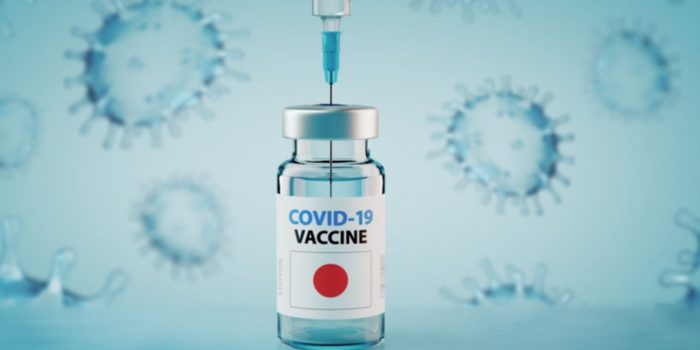Researchers at the Tokyo Metropolitan Institute of Medical Science are working on a COVID-19 vaccine that will provide lifelong immunity against the SARS-CoV-2 virus and will be able to be transported at room temperature to far-off corners of the world, The Japan Times reported.
Vaccinations have worked to reduce the intensity of the disease but are not very effective in stopping the spread of the virus. There are variant-specific booster shots expected to be out in the future.
The vaccine that is being developed by Michinori Kohara and his team of researchers employs the most successful vaccine used in history against smallpox. The team uses a strain of the vaccinia virus that does not cause disease but replaced some of its protein components with those from the SARS-CoV-2 spike protein.

Kohara is confident that his vaccine can not only deliver potent neutralizing antibodies with a single dose but also induce strong cellular immunity that offers long-term protection.
Experiments conducted in mice showed that vaccinated mice maintained high antibody levels for more than 20 months or their average lifetime. When two doses were administered, three weeks apart, the neutralizing antibodies increased tenfold, the report said.
Similar experiments conducted in macaques showed that vaccine protected them from infection as virus levels in the vaccinated macaques remained lower than detection limits, seven days after they were infected with the coronavirus.
It was also said that the vaccine would give an extra benefit of producing fewer side-effects compared to other vaccines that have been given emergency-use authorizations. The non-pathogenic strain used in the vaccine design is incapable of replicating in mammals and would produce fewer side-effect reactions, Kohara claimed.
:no_upscale()/cdn.vox-cdn.com/uploads/chorus_asset/file/19767040/GettyImages_1204891707.jpg)
The vaccine has been tested on the four previously reported coronavirus variants of concern. It proved to be effective. Kohara told the media outlet that he expects it to work against Omicron as well.
The Tokyo Metropolitan Institute of Medical Science does not have prior experience in commercializing a vaccine and has signed up domestic drugmaker Nobelpharma Co to take it through clinical trials. The first and second phases of human clinical trials are expected to begin only in 2023 followed by a larger phase trial immediately if no efficacy and safety concerns pop up. If things remain on track, the vaccine will be available by 2024.


